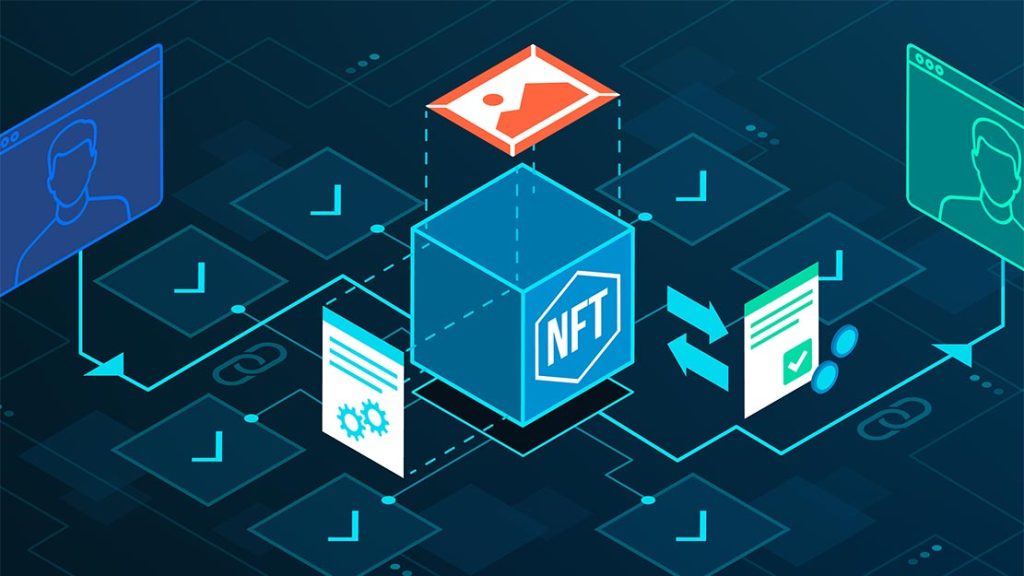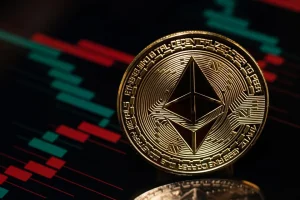NFT, short for Non-Fungible Token, is a type of digital asset that represents ownership or proof of authenticity of a unique piece of content, such as artwork, music, or virtual items.
Unlike cryptocurrencies like Bitcoin, which are interchangeable, each NFT is distinct and cannot be exchanged on a one-to-one basis. NFTs use blockchain technology, which makes ownership records transparent, secure, and unchangeable. This uniqueness makes NFTs highly sought after by collectors and artists, as they provide a way to establish ownership in the digital realm.
NFTs have a wide range of applications and uses. A few of them are:
- Digital Art: NFTs have gained immense popularity in the digital art world. Artists can create and sell unique digital artwork as NFTs, providing proof of ownership and authenticity.
- Collectibles: NFTs have revolutionized the concept of collectibles by allowing individuals to own unique virtual items, such as virtual real estate, and in-game assets.
- Music Industry: NFTs are being utilized by musicians to release limited edition tracks, albums, and exclusive experiences to their fans, creating new revenue streams.
- Proof of Ownership: NFTs can serve as verifiable proof of ownership for physical assets like real estate and high-value items, providing security in ownership records.
- Intellectual Property Protection: NFTs can help protect intellectual property rights by establishing ownership for digital content, including photographs and written works.
- Tokenization: NFTs enable the tokenization of assets, allowing fractional ownership for projects.
- Gaming and Virtual Worlds: NFTs are integrated into gaming and virtual worlds, enabling players to own and trade in-game assets, characters, and virtual items.

How to Store NFTs
When it comes to storing NFTs (Non-Fungible Tokens), there are several options available to ensure their safekeeping.
- Digital Wallets: Digital wallets dedicated to NFT storage are a popular choice. These wallets, such as MetaMask, Trust Wallet, or MyEtherWallet, provide a secure platform to store, manage, and access NFTs. They are accessible through web or mobile applications.
- Exchanges and Marketplaces: Many blockchain platforms and NFT marketplaces, such as OpenSea offer integrated storage solutions. Users can store their NFTs directly on these platforms, leveraging their built-in wallets for easy access.
- Hardware Wallets: Hardware wallets, like Ledger or Trezor, provide an offline storage option for enhanced security. These physical devices store NFTs offline, protecting them from threats such as hacking or malware.
Each of these option offers its own set of advantages in terms of security, convenience, and control. Here are some steps to guide you on how to store NFTs effectively:
- Choose a storage method: Consider the different storage options available and select one that aligns with you.
- Set up a digital wallet: If you opt for a digital wallet, choose a reputable wallet provider that supports NFT storage. Create an account and follow the instructions to set up your wallet. Also, backup your private keys or recovery phrases.
- Connect to a compatible blockchain: Ensure that your wallet is compatible with the blockchain network where your NFTs reside. Different NFTs are hosted on specific blockchains such as Ethereum, Binance Smart Chain, or Solana. Connect your wallet to the appropriate blockchain network.
- Transfer NFTs to your wallet: Once your wallet is set up and connected to the correct blockchain, you can transfer your NFTs to your wallet. This usually involves initiating a transfer or withdrawal process from the marketplace where you purchased or received the NFTs. Follow the specific instructions provided by the platform and confirm the transaction.
- Verify NFTs in your wallet: After the transfer, check your wallet to ensure that the NFTs are properly displayed. Confirm the ownership details and any accompanying information related to the NFTs.
When storing your NFTs, it is essential to remain cautious. Beware of phishing attempts and suspicious links that may compromise the security of your assets. Always use reputable sources and double-check URLs before entering any sensitive information, such as private keys or passwords.
If you find yourself in need of cash, one option is to convert your NFT assets into cryptocurrency and then sell the cryptocurrency for cash. This process provides a pathway to liquidate your NFTs and access tangible funds. You can always sell the crypto for cash on Dart Africa.
Dart Africa offers a user-friendly service that allows you to convert your crypto holdings, including the proceeds from NFT sales, into cash that can be withdrawn to your bank account or mobile money. This way, you can harness the value of your NFTs and easily access funds for daily transactions.





